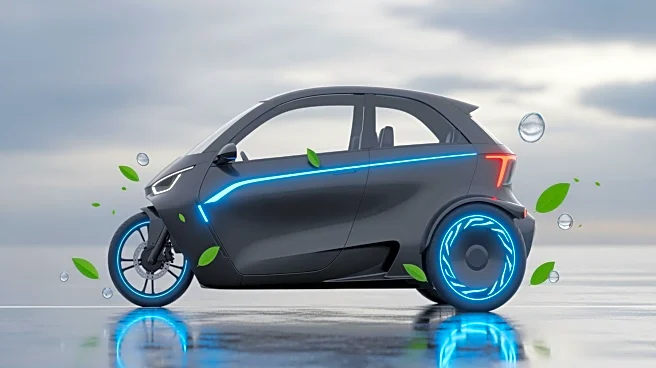What's Happening?
The Philippines is addressing climate-related challenges by introducing the C-Trike electric tricycle, a zero-emission vehicle developed by Cagayan State University (CSU) through its ElectroMobility Research and Development Center. This initiative is part
of the Department of Science and Technology's Smart and Sustainable Communities Program, aimed at reducing carbon emissions and pollution. The C-Trike, funded with approximately $1.4 million, can travel up to 80 kilometers on a single charge and features a fast-charging battery developed in collaboration with UP Diliman. The project has garnered positive public reception and aims to replace traditional gasoline-powered tricycles, significantly reducing operating costs and improving air quality in urban areas.
Why It's Important?
The introduction of the C-Trike represents a significant step towards sustainable transportation in the Philippines, a country vulnerable to climate-related disasters. By reducing reliance on fossil fuels, the initiative could help achieve global carbon emission reduction goals, potentially cutting emissions by 75% by 2030. This transition not only addresses environmental concerns but also offers economic benefits, as the C-Trike's lower operating costs increase income for drivers. The project highlights the role of regional institutions in developing locally relevant solutions to global challenges, setting a model for other universities and research centers.
What's Next?
CSU has signed Technology Licensing Agreements to accelerate the commercialization and deployment of the C-Trike. Discussions with local stakeholders, including the Federation of Tricycle Operators and Drivers Association, are underway to enact ordinances regulating the use of converted electric tricycles. The project is focused on improving charging efficiency and establishing battery-swapping stations to further reduce costs. As the initiative expands, it could lead to widespread adoption of electric tricycles across the Philippines, contributing to national and global sustainability goals.















